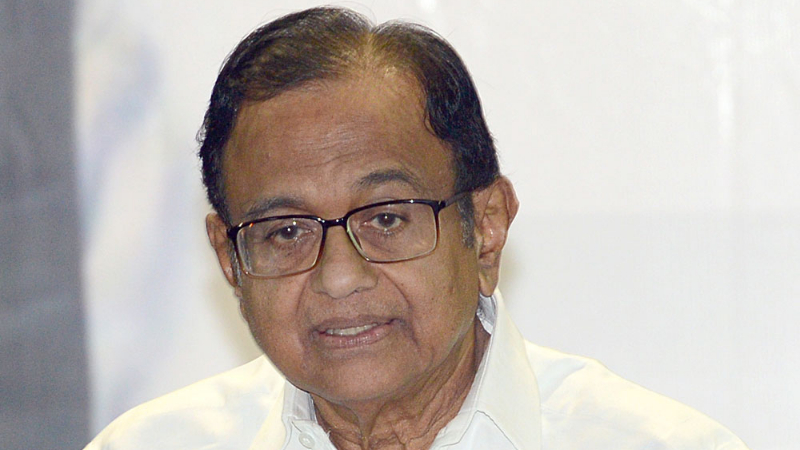Former finance minister P. Chidambaram today tried to puncture Nirmala Sitharaman’s maiden budget speech, by attacking on GDP, lack of jobs, foreign direct investment and the BJP government’s goal of making India a $5-trillion economy in the near future.
“Foreign investors, rating agencies, international organisations do not read Indian newspapers and do not watch the tamed India television channels,” Chidambaram said. “What they hear, what they read about political instability, political chicanery and political upmanship will have an impact on the economy,” he said in the Rajya Sabha.
He called the budget “insipid”, one that didn’t present any bold measures or structural reforms despite this government’s huge mandate.
Chidambaram gave an example about unemployment. For 62,907 khalasi posts, 82 lakh people had applied, out of which 4,19,137 were BTech graduates and 40,751 had a Masters in Engineering, he said.
“This is the economy she has inherited,” Chidambaram said. “I don't blame her for that but taking note of the reality, you should have been bold.”
Investment was the key to growth, Chidambaram reminded the House. He said that FDI has limits and is controlled by the macro economy of the world. He contended that domestic savings was the only way to boost the economy.
“There is nothing in this budget that will improve domestic savings, in particular household savings. Who saves? It is the middle class that saves. Is there anything in this budget that enthuses the middle class to save more. Where is the incentive to save more? Please teach me. I’m willing to be a student if the finance minister will be a teacher,” Chidambaram said.
He also said that some of the targets that Sitharaman had set were unrealistic.
“For last year, income tax collection increased by 7.1 per cent, for the new year the finance minister is projecting income tax collection will rise by 23.25 per cent. If you achieve that you will rank with the Olympian pole vaulter,” he said.
Towards the end of his speech, Chidambaram attempted a series of “fact-checks” on claims made in Sitharaman’s speech.
He questioned the famed Swachh Bharat Abhiyan. “9.6 crore toilets have been constructed since October 2, 2014. More than 5.6 lakh villages have become Open Defecation Free (ODF),” the finance minister had said in her speech.
Chidambaram said Sitharaman should speak to Bezwada Wilson, the national convenor of the Safai Karmachari Andolan, on what it means. He said the kind of toilets being built had perpetuated manual scavenging.
He also questioned her claims on FDI. “India’s FDI inflows in 2018-19 remained strong at $64.375 billion marking a 6% growth over the previous year,” Sitharaman said in the speech.
Chidambaram said that “she is right (about the figure), but she forgot to mention it was gross FDI. Net FDI was only US$44 billion. We should be transparent.”
Sitharaman’s speech on the banking sector claimed that NPAs of commercial banks have reduced by over 1 lakh crore over the last year. Chidambaram agreed with the figure but added: “In five years of Modi-I, Rs. 5,55,603 crore was written off for corporates, only for corporates. You won’t write off farm loans, you won’t write off education loans.
You won’t write off loans for the micro or small industries.”
He also shot down all talk of reaching the goal of becoming a $5-trillion economy. “It will double to five trillion dollars,” he said. “It doesn’t require a Prime Minister or a finance minister. It will double. Why? It is the magic of compounding. Every money lender knows this. If the nominal growth of the economy is 12 per cent, it will double in six years. If it is 11 per cent then it will double in seven years.”

